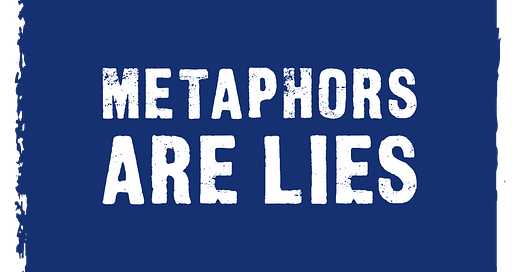A new paper showing that teaching kids how to think about the larger ideas in social questions makes them more intelligent and happier over time is making the social media rounds. And with good reason — it is a good reminder of the importance of teaching kids, all people really, how to look at systems in the world. But I am also seeing it used as another round of “humanities good, STREM bad” wars. And that is counterproductive.
Look, I get it. Humanities need defending. Far too many short-sighted politicians and university administrators are attempting to close the budget holes they created by under supporting schools and over building and over hiring administrators by chopping humanity programs. That is obviously short-sighted and damaging to the institutions, the students, and the communities the institutions serve. But too many people let their justifiable anger at having humanities sacrificed to budgetary and political expediency turn into an equally short-sighted attack on the value of STEM. A literate society needs to be literate in both.
I have talked about this before, but humanities programs offer no panacea to enlightened thinking. The Dunning School, a school of historical interpretation that downplayed slavery as a cause for the Civil War and valorized the Confederacy, came, obviously, out of the humanities. Many of the so-called tech bros that do so much damage to us aren’t actually technical but instead see themselves as philosopher kings —and they take that philosophy seriously. They read and study history and philosophy and find in those humanities justification for not letting woman vote and for denigrating democracy and valorizing Spartans (despite the Spartans being among history's greatest losers). “The central message of Buddhism is not "Every man for himself." And the London Underground is not a political movement. Those are all mistakes, Otto. I looked them up.” and all that.
Conversely, anti-vax, COVID denial, and the credulous press OpenAI and before that crypto huskers receive is a function of people not understanding the science and technology well enough to sniff out potential nonsense. The fact that the CTO of OpenAI could not handle a question as simple as “did you scrape YouTube videos for your training data” shows just how inadequate the questioning of these people has been up until now, and thus, just how inadequate the scientific education most of our journalists have received and absorbed actually is. Similalrly, though, science is riddled with stories of progress held back because theories didn’t align with the unexamined prejudices of the day or flatter the current power structures. There is a lot of truth to the old saying that science advances one funeral at a time.
So yes, humanities need to be defended, and papers like the one making the rounds are an undeniably good reminder of the contribution of humanities to a well rounded education. But what matters is that we teach kids how to think about systems. And you cannot do that without humanities and you cannot do that without the sciences. A one-sided view of the world just leaves you half blind. The sooner we recognize that, the sooner we can educate our kids properly.




